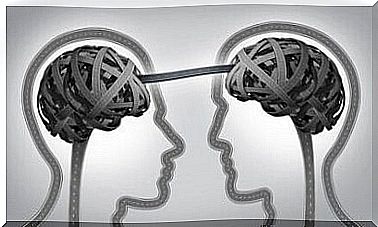How To Overcome The Contempt Of Others?

Contempt for others can be a source of really intense suffering that is difficult to overcome. We may feel slighted by comments, actions (or omissions), disrespect… Now, when it comes to taking a stand, it’s good to remember that what matters is not the behavior of others, but what we do about it.
Contempt and how it affects us
According to the RAE ( Royal Spanish Academy ), contempt literally means ‘lack of esteem, appreciation or consideration’. So contempt is a lack of appreciation.
When they despise us, we feel bad, and this is normal even if we have learned to distance ourselves emotionally in situations where distancing can be a good option. We must become less attached to what is happening and position ourselves as spectators.
On the other hand, the way we feel will also depend on the type of contempt, whether it involves a sensitive issue for us, the person, the precedents, the intention we attribute, etc. Depending on these and other variables, we will feel contempt with more or less intensity or we will manage it better or worse.
That said, the question is, what can we do when we feel unappreciated? In response, we’ll leave 5 key ideas that can help you manage these types of comments or offenses.

How to overcome the contempt of others
How to overcome the contempt of others? Today we’ll share 5 key ideas for tackling this situation and preventing it from interfering with your well-being.
Apply Emotional Self-Control
Emotional self-control is an ability that allows us to control our own emotions and impulses. It is normal that, when we feel neglected, our reaction is bad (sometimes, even violently). This is because our amygdala is activated, which makes us react like this or become defensive.
However, emotional self-control allows us to locate these emotions, validate them, understand them and manage them in a healthy way.
Practicing self-control is not easy and takes time, but it is very effective as it allows us to decide how we want to manage the emotional impact of what happens to us.
face the situation
Another key idea for overcoming the contempt of others is to simply face the situation. Coping with the situation involves deciding what space or place you want to give to the person who has despised you in your life.
It implies asking: “What is this contempt based on?”, “Is it a contempt made with malicious intent?”, “Is it a one-off or recurring situation?”, etc. That is, it involves asking yourself what’s really going on and deciding whether you want this person in your life or not, whether you want to talk to them about it or not, and so on.
sympathize
It’s normal to feel bad in the face of contempt. Nobody likes to feel unappreciated and, in fact, this is a situation we should not tolerate. However, we can also learn something from this. This learning comes from your reflection on the situation. To reflect on this, try to empathize with the person who despised you. Why do you think she did this?
Do you think someone who is “well” needs to despise others? Put yourself in her shoes, try to find out what is behind this behavior. Of course, this is a completely optional and personal step, since we won’t have the same level of empathy with someone very close and dear as with a stranger.
Give contempt the place it deserves
Does this contempt really say anything about you? Or the other person? To overcome the contempt of others, it is important to emotionally distance yourself from the situation and reflect, coldly, on what happened.
Do you think you can distance yourself from that contempt? Are you giving it too much importance? Reflecting on these ideas will allow you, over time, to give contempt the place it deserves in your life, no more, no less.
Often, contempt says more about the sender than the recipient, more about the one who takes aim than about the one who gets shot.









